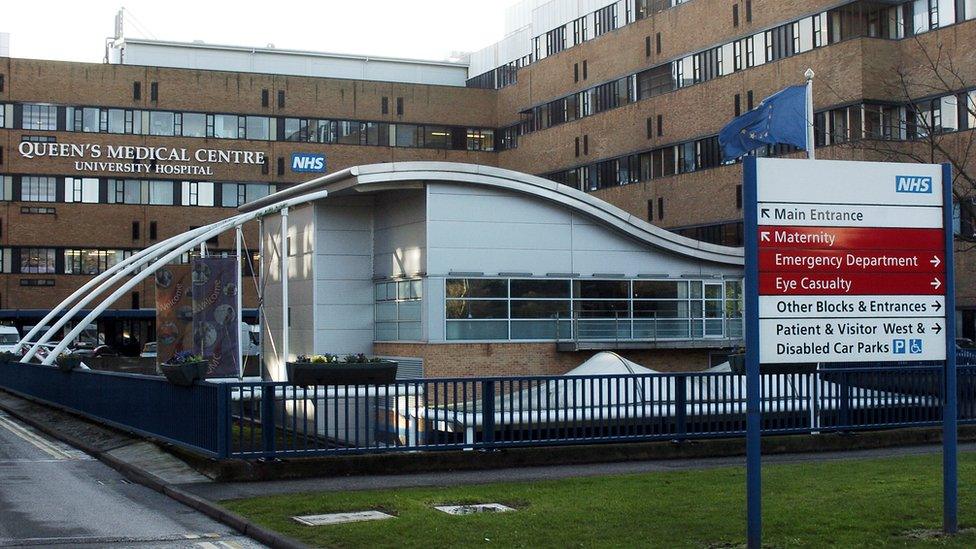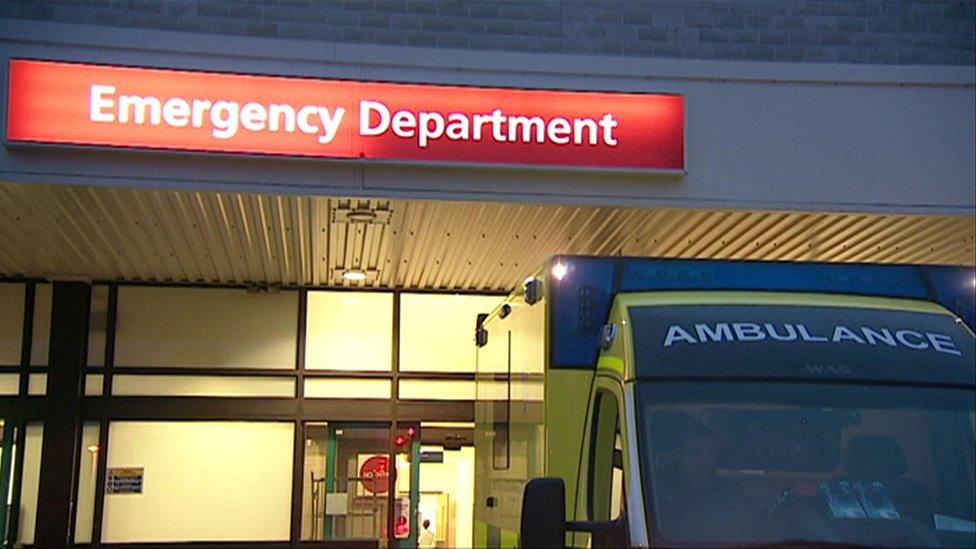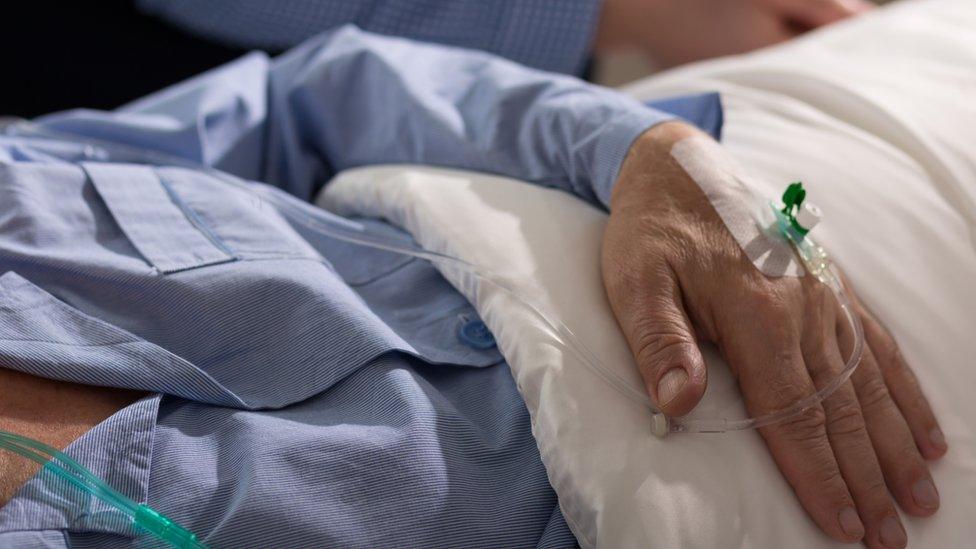Nottingham Queen's Medical Centre declares first 'black alert'
- Published

The Queen's Medical Centre has a bed shortage less than a week after plans to cut hundreds of beds
An A&E department has issued its highest alert warning it does not have enough beds for patients.
The "black alert" at the Queen's Medical Centre (QMC) in Nottingham comes less than a week after plans to cut hundreds of beds were announced.
Nottingham University Hospitals NHS Trust has urged people to only attend the department in a "real emergency".
A black alert means there are not enough beds to cope with the number of patients being admitted.
Dr Alun Harcombe, divisional director for medicine, said staff have been "working tirelessly" and the department "remains open".
He said: "We are working closely with our health and social care partners across Nottinghamshire to provide timely emergency patient care in hospital as well as timely transfers of care out of hospital to other facilities in the community.
"We ask the public to help our patients, families and staff and only use the emergency department in a real emergency."
He added that people should "consider walk-in centres" for minor injuries or illness advice.
On Thursday, the trust proposed to cut 200 hospital beds over the next two years.

What is a black alert?

The NHS uses a national internal alert system based on the colours green, amber, red and black to rank how busy a local health and social care system is
Black alert status occurs when a hospital cannot cope with the number of people coming into the accident and emergency department because not enough people are being discharged
It effectively means the hospital does not have enough bed capacity to cope

- Published24 November 2016

- Published21 June 2016

- Published29 January 2016

- Published29 January 2016

- Published8 January 2016